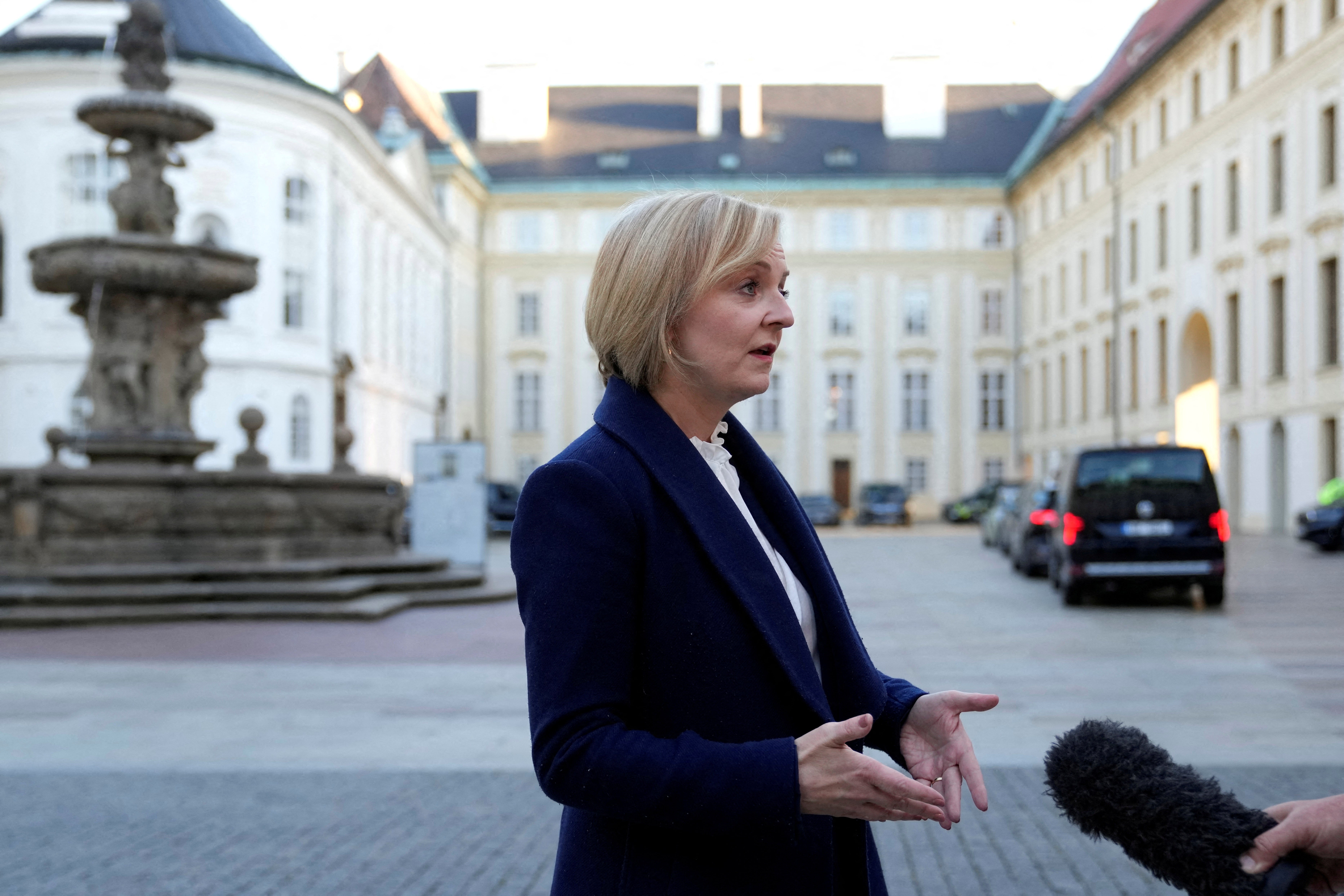Liz Truss has done it again by blocking an energy-saving campaign: right idea, wrong time
The prime minister thinks government should ‘get out of the way’ – the voters don’t (always) agree, writes John Rentoul


It is hard to know which is more surprising: that Jacob Rees-Mogg, defender of individual freedom, should propose a £15m government advertising campaign urging people to use less energy, or that Liz Truss, a prime minister at bay, should block it.
Truss would be right to argue that everyone is well aware of the energy crisis and is already taking advice from the real prime minister, Martin Lewis of the Money Saving Party, on how to cut their gas and electricity use.
But there are two good arguments for a government campaign. One is that humans are surprisingly malleable and that exhortations from public authorities do affect behaviour. Even a small change in energy use can make a difference across a whole population, and any further reduction would mean a significant saving in taxpayer subsidy for energy prices.
The other is that the prime minister needs to align herself with public opinion, rather than carry on with her default position which seems to be “everyone else is wrong but me”. There is a strand of British attitudes which resents the nanny state and dislikes being told by officialdom how to run our own lives.
When Truss said in her speech in Birmingham, “I’m not interested in how many two-for-one offers you buy at the supermarket,” she will have found a ready audience outside the conference hall. Legislating against supermarket promotions is not what most people would regard as an effective way to reduce obesity.
But there is, I think, a stronger strand that thinks it is very much the government’s job to tell other people how to live their lives. “There ought to be a law,” and “the government ought to do something about it” are two of the most powerful reflexes in popular policy-making. Everyone thinks they have done their bit by hanging up the washing rather than using the tumble dryer, but they can hear next door’s appliances running and they think it is part of the prime minister’s job to tell them off.
This is only the latest example of how Truss’s instinct seems to let her down. When she was running for the Conservative leadership, I wrote in grudging admiration of her ability to sense the mood of party members. Most of what Rishi Sunak said was sensible, and what she said was not, but she understood what the members wanted to hear, which tended to be (in my opinion) on the not-sensible end of the spectrum.
I assumed that she would adjust the echolocation mechanism once she became prime minister, and retune it to the sensibilities of the wider electorate, but she didn’t. Thus she misjudged the “tax cuts” message. Again, public opinion is not homogenous or even internally consistent. There is a strong strand in favour of tax cuts, but they have to benefit the voter concerned, and that support is conditional on other things, such as affordability, fiscal responsibility and overall economic credibility.
That is why the emergency mini-Budget blew up so badly. The top-rate tax cut drew attention to the flaws in the whole package. Yes, lower taxes are generally preferable to higher taxes, but if they are just paid for by borrowing it starts to look like a Ponzi scheme.
Tax cuts in good economic times would be popular when everyone understands that the public finances are in a healthy, sustainable state. But tax cuts paid for by even more borrowing on top of huge extra borrowing to pay for help with energy bills turned out to be very, very unpopular.
To keep up to speed with all the latest opinions and comment sign up to our free weekly Voices Dispatches newsletter by clicking here
It is the same with Truss’s attempt to raise universal credit by less than prices. In normal times, a lot of voters would agree that benefits shouldn’t rise by more than average earnings for people in work (and that is still true even if they know that 40 per cent of people on universal credit are in work). But these are not normal times. Most people on middle incomes know that hard as things are for them at the moment, things are even harder for the poor.
Now is not the time to cut benefits; or to borrow to cut taxes; or to refuse to lead a national effort to save energy. Truss has once again mistaken a liberal opinion that might be popular in normal times for a fundamental truth that can be applied at all times.
The middle of an energy crisis is no time for her “get government out of the way” ideology. The voters very much want the government to get in the way – and to protect them from a steep drop in their living standards.






Join our commenting forum
Join thought-provoking conversations, follow other Independent readers and see their replies
Comments